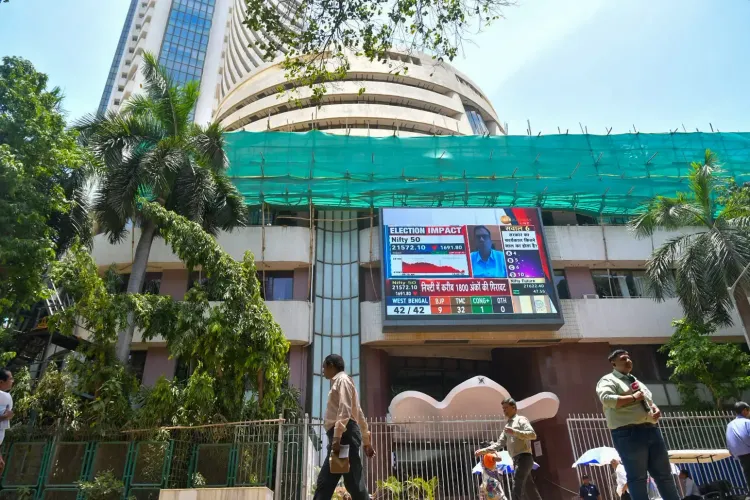Why Did Indian Equity Indices Close Lower Amid Market Selling?

Synopsis
Key Takeaways
- Equity indices faced downward pressure amid market selling.
- Key sectors such as banking and FMCG experienced significant losses.
- Despite the overall decline, IT stocks showed resilience.
- Selective buying was noted in companies with strong fundamentals.
- Market sentiment remains cautious due to FII outflows.
Mumbai, Nov 6 (NationPress) The domestic equity indices finished the day on a negative note on Thursday, influenced by selling across broader markets and persistent foreign institutional investor (FII) outflows.
Market sentiment was notably impacted by selling in key sectors such as banking, Financial Services, and FMCG.
The Sensex wrapped up the trading session at 83,311.01, reflecting a decline of 148.14 points or 0.18 percent. The 30-share index initially showed promise, starting at 83,516.69 compared to the previous day's close of 83,459.15. Nevertheless, the index succumbed to selling pressures in banking, Financial Services, and the overall market.
The Nifty concluded at 25,509.70, down 87.95 points or 0.34 percent.
“The domestic market experienced significant volatility, with extensive profit booking occurring against the backdrop of ongoing FII outflows, even as the Asian market remained supportive. Despite early optimism stemming from the inclusion of four Indian companies in the MSCI Global Standard Index and encouraging U.S. macroeconomic data, the market was weighed down by disappointing domestic PMI figures, suggesting a decline in sentiment,” said Vinod Nair, Head of Research at Geojit Investments Limited.
While most sectors faced losses, IT stocks displayed resilience, buoyed by satisfactory earnings and improvements in U.S. economic indicators. Amid the prevailing caution, selective buying was observed in fundamentally sound firms thanks to unexpectedly strong Q2 earnings.
The top losers from the Sensex cohort included PowerGrid, Eternal, BEL, Bajaj Finance, ICICI Bank, Titan, NTPC, Tata Steel, Bharati Airtel, Kotak Bank, L&T, and Bajaj FinServ. Conversely, Asian Paint, Mahindra and Mahindra, TCS, Maruti Suzuki, and Tata Motors Passenger Vehicle ended the day positively.
The majority of sectoral indices experienced declines amid selling pressure. The Nifty Fin Services index dropped 162 points or 0.60 percent, Nifty Bank fell by 272 points or 0.47 percent, and Nifty FMCG closed down by 103 points or 0.19 percent. In contrast, Nifty IT and Nifty Auto ended the session with slight gains.
Broader indices mirrored this trend. The Nifty Small Cap 100 decreased by 255 points or 1.39 percent, Nifty Midcap 100 dropped 568 points or 0.95 percent, and Nifty 100 concluded the day 129 points or 0.49 percent lower.









